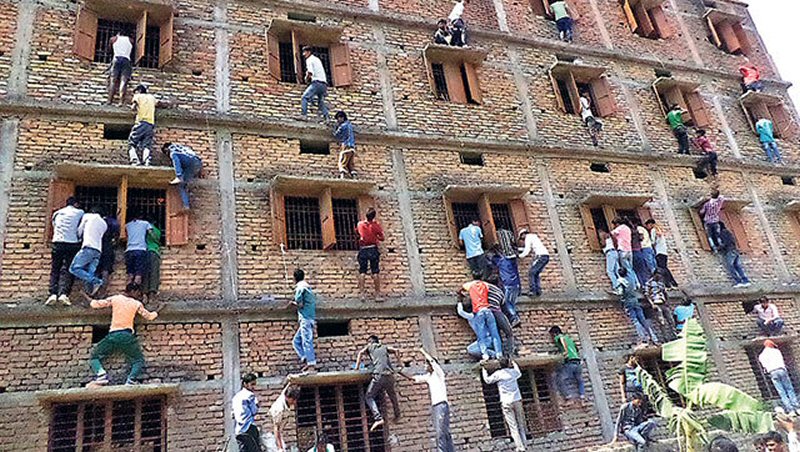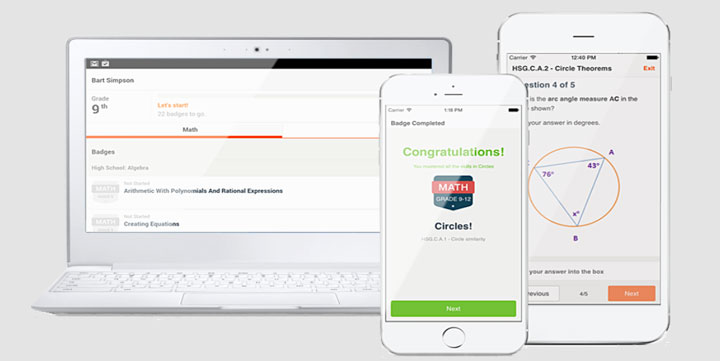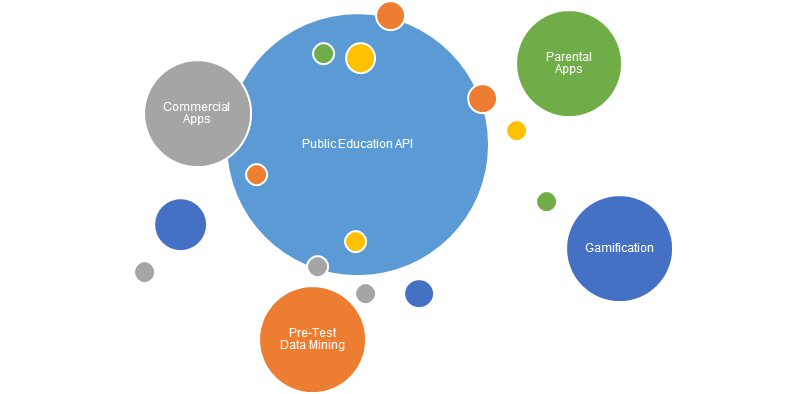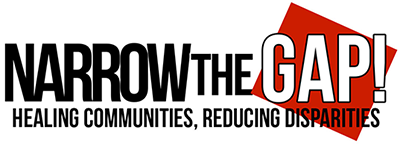by This email address is being protected from spambots. You need JavaScript enabled to view it., Webmaster
As I have started teaching Black young men and women again at an HBCU, I have just come to understand the extent to which some Black students fall through the academic cracks. An educational life of advanced placement and scoring well on standardized tests shielded me from seeing some of the problems that many Black youth go through in our local school system and how they have been failed on an educational and community basis.
There are several community organizations in West Louisville that offer tutoring assistance to local youth, and we shall share some of them here. Most of these are free, others very low-cost. If there are other regular programs that I am unaware of, please reach us at This email address is being protected from spambots. You need JavaScript enabled to view it. and share that information with us and we will make sure that our readership are informed.
There are groups within the community that lobby for more considerable solutions. Some believe that the creation and development of Black child-focused charter schools are a viable solution to bridge these gaps. An increasing number of local parents are starting to homeschool their children in West Louisville neighborhoods. These are all individual solutions that will benefit some Black children. However, no matter how many alternatives are produced, the majority of this city’s children will be educated by JCPS. Keeping that and the use of Common Core in mind, let us consider a modern solution for improving our children’s opportunities.
Immersive Education and how Our Youth Can “Narrow The Gap”

How can we effectively educate our Black boys and girls? Let us implement an augmented and immersive education in their current environment. If we cannot immediately remove our children from their current environment, then let us transform the environment to be education-centric towards that child and create immersive connection points. Let us focus on pressuring the public school system to make the educational curriculum open source so brothers and sisters can make open source applications to build an immersive educational environment within our communities. As cities make crime-mapping data for developers to create open source apps then our cities can make educational courses available for developers to create open source immersive education apps to better educate our children. The challenge is there to reach them earlier, and provide them more support from the risks of falling behind.
Let me paint you a picture…let me walk you through a narrative. Say that we know that third graders are learning fractions and we know that week by week what they are learning in fractions from an API subscription feed. You take your family and your third grader to a restaurant in a Black community and the restaurant can have a tabletop touchscreen kiosk (a mounted iPad or Android tablet) that can not only take orders but the kiosk can pull the fraction lessons from the cloud based upon the child’s course for that week and the family can work out the problem together on the kiosk while waiting to be served. This is an example of immersive education that allows for learning opportunities to be everywhere and supported by the community and its commercial institutions so that we are all on the same page to our children’s learning and getting the best education.

Along with that, we can develop applications off the open data to show parents how to teach their children the material that they are learning that week to engage parents and caregivers into the discussion. We have open source developers who will do this for free to support Black children, Black parents and Black education and we have the talent and skills to make this happen if the data is made available to us. This allows us to help a parent come home, see and read what their child is learning, and we can talk with parents and show them how to help their children work fractions…or as they get older algebra and geometry…creating new opportunities to allow a parent or caregiver have closer bonds with their children.
When public schools can be moved to make the curriculum, schedule and books open data, applications can be written from that data to create immersive apps that can help the entire community focus on our children’s education. Our local merchants can be engaged with helping our kids with fractions, or geometry. The after-school system, Boys and Girls Clubs and local tutoring programs can be engaged and my Black developer and engineer comrades can be engaged and mobilized to support our youth. We have a direct stake in the material our children have to master, and again, if crime data can be shared to create useful apps, public education APIs can be provided every bit the same so that we can teach our children.

You need to see this. Look at some of our children’s competition. It is a picture of Indian parents climbing up walls and talking through windows to help their children do well on a test. It shows us the hunger some peoples in this world have to advance their children and expand their possibilities…and we can do the same!
We are in the 21st century, brothers and sisters. Our children will have to compete in an increasingly globalized, mechanized, digitized society for opportunities that are global based. Nobody’s asking Chinese or (East) Indian children about what their test scores were, and we have wasted years and time testing our kids into the rubble with (perhaps) good-intentioned initiatives that have failed to work for the majority of our kids. Thank goodness we are moving on from No Child Left Behind. Our children will be competing with Asian youth of multiple nationalities in the upcoming decades. They have to be prepared.
A Proposal To Get From There From Here: OpenEd’s Common Core Quest, Along With Custom-Created Community-Focused APIs

Common Core Quest is a free app from OpenEd, available in the Apple, Android, and Chrome stores, as well as online. It allows students to take quizzes to demonstrate mastery of Common Core Math and English Language Arts skills and earn badges for each category. When students don't achieve mastery, the app recommends videos and games to learn the precise micro-concepts they are struggling with. Common Core Quest is also used by students, parents and tutors outside of the formal classroom.
OpenEd reports student mastery against assessments and standards. Once the students takes an assessment, their teacher can view their results via mastery chart analytics. Unlike other classroom analytics, OpenEd's mastery chart recommends specific resources for remediation: suggestions to solve problems instead of just highlighting problems.
We have to protect the interests of our Black children and prepare them for the future in the most effective possible ways. Our proposed solution to preparing Black girls and boys are through creating an immersive environment and support structure throughout multiple venues in our communities by distributing the data available to help our children learn the materials currently present in school. We can create apps that helps a parent talk to their child about Language Arts on a specific course during a specific week and we can work in gamification and commercial incentives to reinforce education and reward children so they can know education is everywhere and not just school. We can stop engaging in less successful behaviors, in having overwhelmed kids going to school and coming home trying to figure things out on their own while their overwhelmed parents can do little to help then get scapegoated – we can all get involved in helping our children succeed as we have public education open data available to us.
An important step is the establishment of a local, open source format that JCPS will make available (for my national and international readers, your public school system as well). We want the curriculum and Table of Contents of any book that are being used in these classrooms and the actual lessons and study. Just as Wikipedia is making volumes of encyclopedias obsolete, open data may do much of the same with traditional books and it provides new opportunities for immersive education.

There is considerable potential and upside in immersive education for local economies, particularly in the neighborhoods that make up our West Louisville, through connecting local businesses and committed partners to families. Families can now shop and dine on weekdays and still immerse their and our children via education and their homework through a more complete community involvement.
We have multiple vendors and people skilled in video and audio production, we have fellow developers and coders throughout West Louisville and the Metro proper. These talented people can be contracted and hired to create customized digital signage and IPTV, digital YouTube/Vimeo-like 30 second clips on how to do lessons on fractions, or language arts, or science, or Black history…and it connects schools to our growing West Louisville commercial zones compelling parents and students to shop local. Over time, our children’s grades and academic achievement improves and the entire community has become a part of the process. Rather than attacking already overwhelmed parents for not doing this or that for their child, we are helping parents through the creation of empowerment tools which ultimately helps us all.

